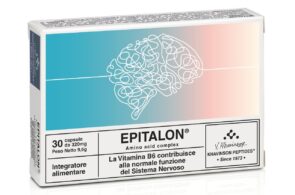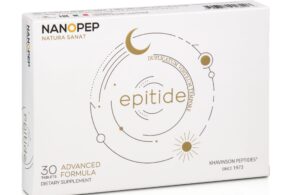Short peptides are promising therapeutic candidates for Covid-19
- Therapeutics short peptides for Covid-19
- Are peptides suitable for drug development?
- Which companies are currently developing peptide-based drugs for the prevention of coronavirus?
- Beneficial effect of short peptides Epitalon and Epitide and on the human immune system
According to the WHO, they are today more than 168 million and around 3.5 million respectively (English article, which was published on the 23rd of February 2021, reports 27 million cases and 880,000 deaths). Although several therapeutic agents based on existing medications have been taken into the lab for trials in haste for positive results, very little attention has been paid to short peptides.
Today, eyes are gradually turning toward antiviral peptides (AVP), also known as antimicrobial peptides (AMP), as they display a broad spectrum of antiviral activities. In this article, we will shed light on AVPs and their potential for treating Covid-19 and other virus-related respiratory diseases.
Therapeutics short peptides for Covid-19
COVID-19 is a disease caused by a new strain of coronavirus known as SARS-CoV-2. Before it was reported to the world health organisation (WHO) on December 31, 2019, it had never been previously identified in human beings. The virus spreads by leaving the nostrils or mouth of an infected individual (as respiratory droplets) through sneezing or coughing and coming in contact with a healthy individual. Once infected, the virus finds a way to hijack the cells and utilises their replicative mechanism to create more copies of itself and spread throughout the body.
To slow down, or possibly halt the replication of SARS-CoV-2, a drug capable of inhibiting the virus’ proteins, and normalising the state of the hemostasis system is needed. Certain short peptides have demonstrated the ability to exhibit these functions; thus, the reason for being considered a potential treatment for the virus. Peptides for long COVID can be a big step toward successful recovery.
Another significant reason why peptides seem so promising is because of their impressive safety profile. During the early stages of infection and spread of the virus, there was extensive use of antimalarial drugs in an attempt to treat severe cases that occurred in seniors and patients with chronic diseases. However, the clinical efficacy of these drugs has not been confirmed. Furthermore, given their adverse reactions; they can worsen patients condition, and even lead to death under certain circumstances.
On the other hand, short peptides pose little to no side effects as they do not accumulate in the kidney, liver, and other sensitive organs like most traditional drugs but are recycled by the body instead. As a result of their impressive safety profile, they can be used for long-term treatment of patients with underlying chronic diseases or a history of liver or kidney diseases.
Short peptides consist of 2-4 chains of amino acids; their small molecule size enables them to penetrate cell membranes and the intestinal walls for quick action. These features and more make the biomolecules a promising therapeutic candidate for COVID-19. It feels quite safe to know that peptide-based inhibitors are presently in line to treat the virus.
Are peptides suitable for drug development?
Although anti COVID-19 peptides possess excellent therapeutic qualities, until recently, they weren’t considered suitable for drug development until recently because many of them are unable to survive passage through the gastrointestinal (GI) tract without breaking down. Thanks to the discovery of new methods of testing and creating synthetic peptides that can survive the GI tract and target specific areas of the body. The recent discovery has led to growing interest in the biomolecules, and much consideration as a potential treatment for SARS-CoV-2.
Currently, the food and drug administration (FDA) has approved some peptide-like therapeutic agents to treat varying health conditions, including cardiovascular diseases, cancer, haematology, and of course, infectious diseases. Considering their very high safety profile, ability to penetrate cell membranes quicker, higher purity, and relatively inexpensive cost, it is safe to say that peptides are suitable for drug development. Further drug research on antiviral peptides for COVID-19 can establish a new line of treatment.
Which companies are currently developing peptide-based drugs for the prevention of coronavirus?
Ever Since the world health organisation (WHO) declared coronavirus a Public Health Emergency of International Concern in January 2020, many pharmaceutical companies have swung into action, working tirelessly to produce an effective remedy.
Over 400 drugs are in the developmental stage, and more companies are joining the race to come up with a cure that will both be effective and safe for long-term use. So far, there are 4 companies focusing on developing peptide-based drugs to treat severe COVID-19 patients. They include Generex Biotechnology, its subsidiary, NuGenerex Immuno-Oncology; ProteoGenix, EpiVax, Inc. and Relief Therapeutics.
Considering the increasing number of COVID-19 cases, and the lingering need to find remedies that are safe for long-term use, we’re likely to see more companies developing peptide-based drugs spring up.
Beneficial effect of short peptides Epitalon and Epitide and on the human immune system
The immune system is the body’s defence mechanism against diseases, and keeping it healthy year-round is a great step to take toward preventing infection. While the peptide-based drugs/vaccines are still in their developmental phase and cannot be used, there are beneficial short peptide-based supplements you can take to boost your immune system.
Epitalon and Epitide are two peptides you can bank on. They have shown to be potent therapeutic agents comparable to melatonin, that boost the immune system and may even confer longevity. If used correctly, they may see to the proper regulation of the biorhythms and ultimately improve health. However, it is worth noting the best way to protect yourself from COVID-19 is by adopting proper hygiene practices and social distancing.














